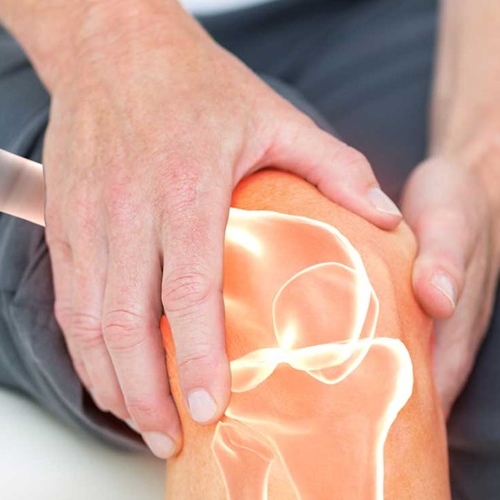Arthritis Facts
Cory Calendine, MD, Orthopaedic Surgeon
There are over 100 different types of arthritis. While arthritis can affect people of all ages, it is most common in those over age 55. In the United States, 23% of all adults have arthritis. About 24 million adults are limited in their activities from arthritis, and more than 1 in 4 adults with arthritis report severe joint pain.
.jpeg)
8 Arthritis Facts to Know
- The most common form of arthritis in the United States is osteoarthritis. Osteoarthritis is a degenerative disease that occurs when the cushioning surface within joints wears away, causing pain, swelling and stiffness.
- Other common inflammatory diseases which cause joint and bone pain are Rheumatoid Arthritis, Gout and Fibromyalgia.
- Rheumatoid arthritis (RA) is an inflammatory disease in which the body’s immune system attacks its own joints and tissues. Rheumatoid Arthritis symptoms are typically more symmetric, meaning they tend to affect the same areas on the right and left sides of the body.
- Gout is a chronic, inflammatory type of arthritis that causes sudden, severe attacks of pain, swelling, redness and tenderness in joints (commonly in the big toe joint).
- Modifiable risk factors for arthritis include managing bodyweight, smoking, infections and working in occupations that require high-impact movements or having joint injuries.
- Additional arthritis risk factors include age, genetics and gender. Females are more likely to develop many types of arthritis [with the exception of gout]. Especially over the age of 50, women are more likely to develop Osteoarthritis than men.
- People with certain types of arthritis (Rheumatoid Arthritis, Lupus) are more likely to experience complications from the flu or other severe infections.
- Arthritis is the leading cause of disability in the U.S. The4 states with the highest prevalence of arthritis are Kentucky, West Virginia, Alabama and Tennessee.
RELATED ARTICLES:
Arthritis Treatment Options

Arthritis doesn’t have a cure, but it can initially be well-managed using exercise, physical therapy, medication and stress reduction with the help of a health care provider. When joint arthritis has become severe and/or stopped responding to more conservative treatments, joint replacement surgery provides the closest thing to a cure we have for arthritis today.
If you are stuck dealing with joint pain and need more options, schedule an appointment today to discuss the treatment plan that is right for you.





.png)


